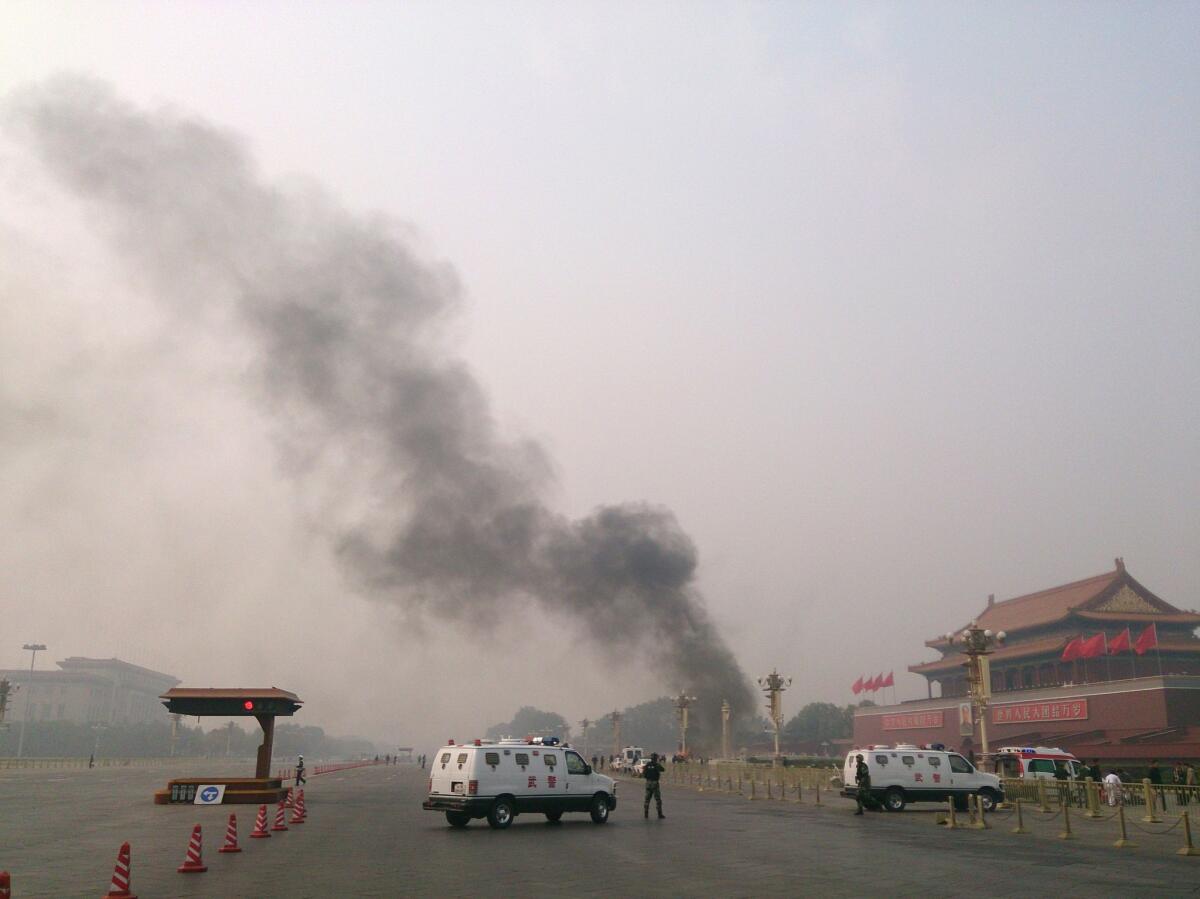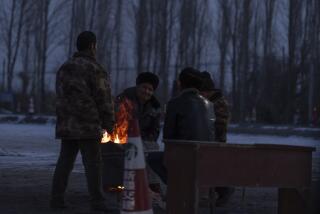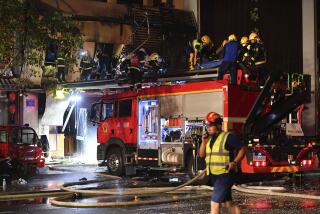Blast hits Chinese city in region visited by Xi; 3 reported dead

Reporting from Beijing — An explosion rocked a plaza outside a train station in Urumqi, capital of China’s Xinjiang province, on Wednesday in the wake of a four-day inspection tour of the restive northwestern area by President Xi Jinping.
The blast at Urumqi’s south railway station about 7 p.m. killed three people and injured 79, state television reported. The broadcaster said assailants attacked people with knives and set off explosions.
The official New China News Agency said police evacuated the area after the explosion and that train service was suspended for two hours before resuming. There was no indication that any assailants had been detained.
The blast came as train stations across the country were full of people traveling before a three-day public holiday that begins Thursday.
Photos from the Urumqi station posted on Weibo, China’s Twitter-like microblog service, showed suitcases, clothing and other personal items scattered about in front of a small police hut, with soot-like black markings on the pavement in a circular pattern.
Troops in military fatigues and police officers were shown surrounding the station. New China News Agency’s Twitter feed reported that the blast was powerful and that a man at a nearby hotel thought it was an earthquake.
Making his first visit to Xinjiang since becoming chief of the Communist Party in late 2012, Xi on Monday described the situation in the region -- which has been beset with ethnic tension and violent clashes -- as “grim and complicated.”
State-run CCTV’s evening news program on Wednesday devoted an extensive segment to Xi’s trip, during which he visited schools, agricultural businesses, private homes, police facilities, border troops and a mosque. In an indication of the sensitive timing of the blast, reports about the explosion in Urumqi from the Weibo account of the People’s Daily newspaper -- and many other accounts -- were quickly removed Wednesday night.
Meeting with police in the city of Kashgar on Monday, Xi said “grass-roots police stations are ‘fists and daggers,’ so you must spare no efforts in serving the people and safeguarding the public security,” according to the news agency.
It wasn’t clear whether Xi was still in the region at the time of the blast.
[Updated, April 30, 5:45 p.m. PDT: Early Thursday, Xi reiterated that the blast at the train station reinforced the need for officials to deepen their understanding of separatism and be resolute against the “arrogance of terrorist violence,” the news agency said.]
Xinjiang is home to a large population of Uighurs, a Turkic-speaking Muslim minority. Relations between Uighurs and ethnic Han Chinese have been fraught in recent years as more Han have moved into the province and the government has sought to develop the resource-rich area’s infrastructure and economy.
Some Uighurs complain that they have not shared equally in the economic boom and say government policies aim to stamp out their cultural and religious practices.
Recently, authorities in the province have posted notices promising rewards for people who report others hoarding weapons or planning attacks. The fliers have also encouraged citizens to notify authorities about people growing beards, wearing veils, ripping up official documents and other behaviors that may indicate a desire to separate from government authority and structure.
In July 2009, riots pitting Uighurs against Han Chinese convulsed Urumqi, killing nearly 200 people and injuring hundreds more, and since then numerous deadly clashes at police stations and other government facilities in the province have been reported.
Central-government authorities are concerned that the violence is spreading beyond Xinjiang. In October, a family of three Uighurs drove their sports utility vehicle onto a crowded sidewalk in Beijing’s Tiananmen Square, killing two tourists and injuring 40 people before setting the car on fire and killing themselves. Authorities described the perpetrators as Islamic militants.
In March, a group of knife-wielding attackers went on a rampage at a train station in the southern province of Yunnan, killing 29 people and injuring about 140; that attack also was blamed on separatists from Xinjiang. That incident happened on the eve of two key political gatherings in Beijing.
In wake of the Kunming attack, Xi and other top leaders have called for a variety of stronger anti-terrorism measures, from strengthening Internet censorship to arming more police with guns.
Tommy Yang in the Times’ Beijing bureau contributed to this report.
More to Read
Sign up for Essential California
The most important California stories and recommendations in your inbox every morning.
You may occasionally receive promotional content from the Los Angeles Times.











